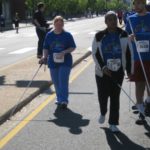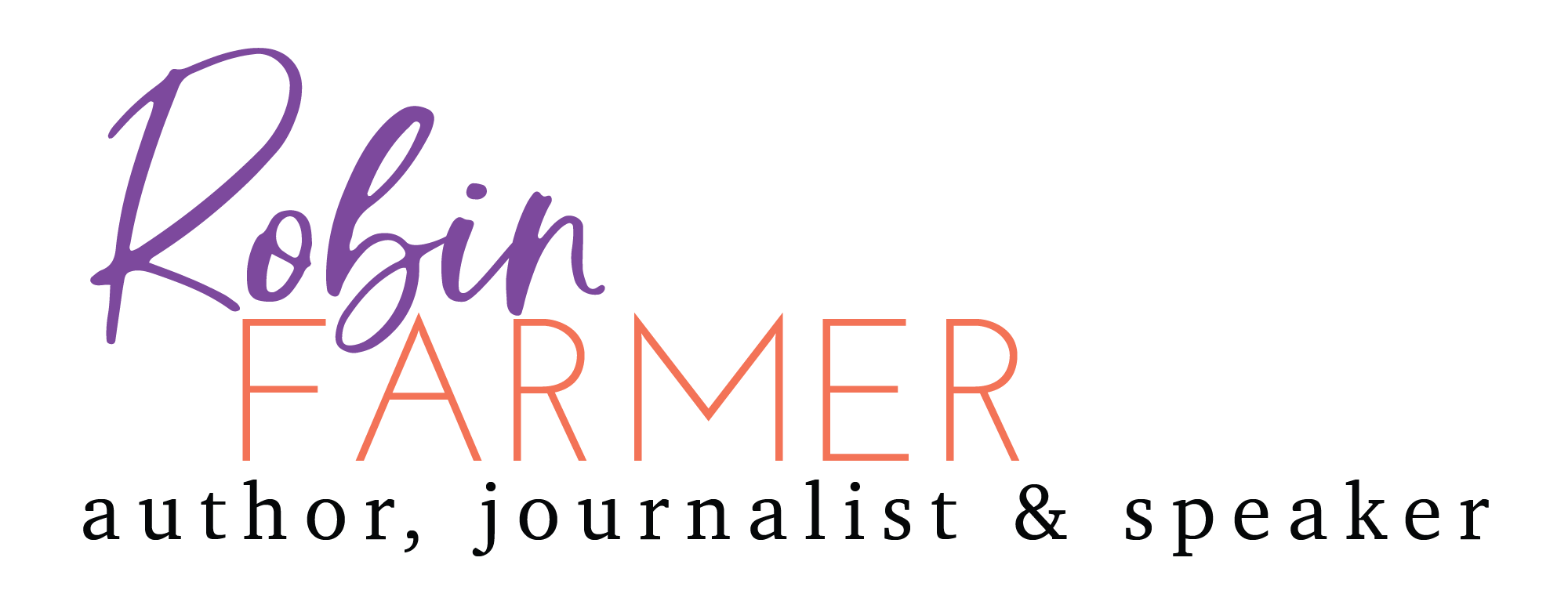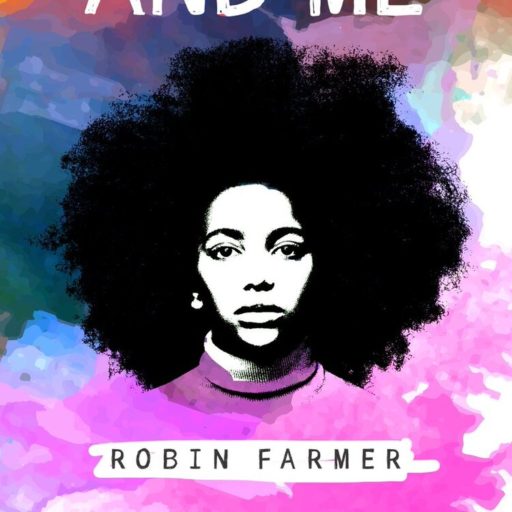 Two minutes into the Ukrop’s Monument Ave. 10K yesterday, I started weeping. The tears caught me off guard. I was swept up in a wave of walkers and joggers moving along Broad Street when I spotted several blind participants easing into the far right side of the walking path. Elated by their participation in Richmond’s biggest street party, I turned around to get a good look. I watched as their walking aids flicked back and forth and winced as a sighted helper behind them got jostled. Maybe they just planned to walk a part of the 6.2 miles stretch, I thought. Whatever their plans, I was rooting for them. I asked my hubby to snap this photo.
Two minutes into the Ukrop’s Monument Ave. 10K yesterday, I started weeping. The tears caught me off guard. I was swept up in a wave of walkers and joggers moving along Broad Street when I spotted several blind participants easing into the far right side of the walking path. Elated by their participation in Richmond’s biggest street party, I turned around to get a good look. I watched as their walking aids flicked back and forth and winced as a sighted helper behind them got jostled. Maybe they just planned to walk a part of the 6.2 miles stretch, I thought. Whatever their plans, I was rooting for them. I asked my hubby to snap this photo.
As we headed left on Lombardy Street, the tears fell. I knew they were tears of gratitude, for it was a glorious, sun-kissed morning and I was blessed to see it and my walking partner, a fabulous husband whose friendship has enriched my life. I knew they were tears tinged with guilt. How much do I take for granted in my life? But I also felt something I had trouble articulating. I promised to dig deeper.
It wasn’t until this morning that my mind journeyed to my sister, Vietta, who lived to be several weeks old. Vietta was born with three holes in her heart. Mom said infants with this condition were called “blue babies” because that was the hue they turned when they could no longer breathe. Had she lived, Vietta would have been handicapped and in a wheelchair, mom was told. I was about 3 when Vietta died, but I still remember my pale, baby sister with the dark hair.
This sister I barely knew had an impact. Growing up, I tried not to make fun of handicapped children as so many of my peers did. Sometimes, when I looked at kids unable to walk or see, I imagined my sister. Without conscientiously realizing it, I saw handicapped children differently. Over the years, disabled became the preferred term to handicapped and I was quick to correct offenders.
It was not until this morning, decades after my sister’s death, that I fully realized my emotional connection to the disabled community, as tenuous as it may be. I realize now that the tears were, in part, for the event’s beautiful diversity, but also for the willingness of these walkers to participate. To be seen. How many people did they impact?
Around mile 4 during the event, my plantar fasciitis threatened to rise up. For about half a mile, I flirted with quitting as walkers passed me in droves. Then, I remembered the blind walkers. I adjusted my attitude and set my sights on finishing the second half of the 10K quicker than the first. We did. I can only hope that this inclusive event was as inspiring for everyone.

